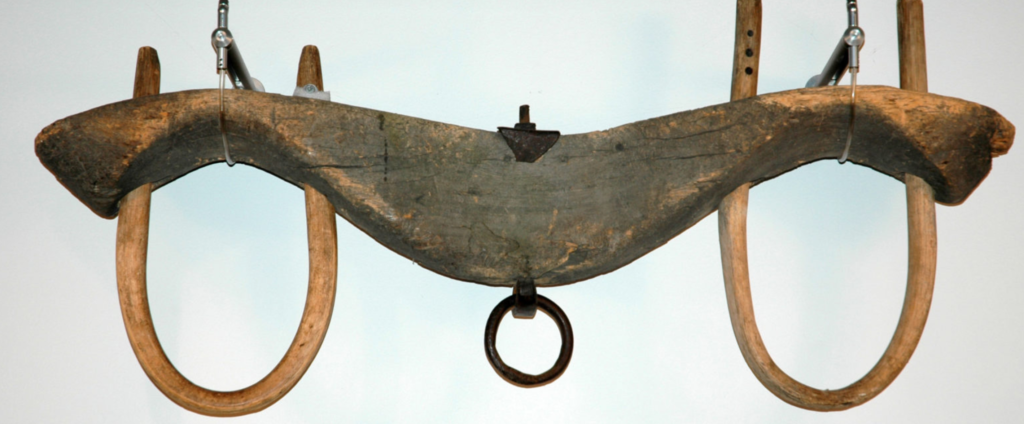A fetus is alive. That is indisputable. A fetus is human. That is indisputable. Put those two facts together and you find that a fetus is a human life.
Everyone agrees that at some point a fetus has human worth. Everyone has a magic line beyond which you can no longer kill. Prolife people consistently believe that line to be conception because at conception we now have a human life.
Proabortion people say, “No, that magic line lies elsewhere.” They may not know exactly where that line is, and those who propose such a line certainly disagree amongst themselves over where that line is, but everyone draws a line somewhere. No morally sane person believes you can go around killing newborns just for the convenience of the mother. At some point we all agree: this is now a human being. You can’t kill him.
The question then is this: where is that line? At what point do we have a human being?
I want to take this blog to discuss various proabortion answers to that question. Where is the line beyond which you can no longer kill?
Some argue that birth is that line. This means that the line varies from pregnancy to pregnancy. Most children are born close to nine months gestation, but some come early and others late. If birth is the line, then a child born at six months is protected more than a child with greater development but still in the womb. The latter child has more ability but, unfortunately, he hasn’t been born yet. Birth changes the location of the child but not the essence of the child. This makes birth somewhat arbitrary to use as a line. Is the definition of a human being based on his location or his essence? If essence, then birth is irrelevant. The child in the womb twenty minutes ago is no different in essence from the child out of the womb now.
But some say that birth is not arbitrary. They sometimes argue that a necessary part of being human is social interaction, and until you are born, you have no social interaction. Let me ask some questions. Does this mean that the hermit in the mountains is not human? Does this mean that if we discovered that the fetus could have primitive social interaction (maybe learn and respond to a human voice), that he would then be human? Does this mean that twins could be human but single births can’t? Does this mean that someone in a coma is not human? Define social interaction in a way that is not ad hoc. And why is that a necessary criterion?
Some claim that the line is not at birth but at a certain level of development.
And where is that level? Six months gestation? Eight months? Nine months? And why did you pick the level you did? If you pick nine months, does this mean that a preemie born at seven months is not a human but the more developed baby at nine months is a human even though he is not yet born? Does this mean that two babies at seven months gestation are the same when one is born and one is not? If they are both human at seven months, then the one in utero must be human and you can’t abort him. If they are not human, then the one that is born must not be human, and you can kill it. This is a big problem with relying on a developmental stage to define who is and isn’t a human.
Some claim that the line is viability. But viability is incredibly elastic. If viability is the line, then a child born in Dallas, Texas is a human at seven months, but a child born in rural Sudan is not a human until nine months. If viability is the line, then in the 1700s babies were human at nine months, but now they are human at seven months. And in another 100 years maybe they will be human at five months. Could we one day have the technology to have babies survive outside the womb from conception on? If so, then those future babies would be human at conception, but ours are not human until seven months. Viability changes with technology. Does the definition of a human also change with technology?
These are some problems inherent in the proabortion position. When you ask proabortion people where their line is and why, they cannot be consistent. Whatever criteria they use for excluding the fetus from humanity produces consequences they don’t want, and they end up picking and choosing what they want in an ad hoc way.
I have been discussing where proabortion people draw their line, but where they draw their line is tied up with what they think a person is.
A fetus is alive, and a fetus is human. A fetus is, thus, a human life. Many proabortion people will admit this much. They look at the science, at the continuity of the organism, at the photos, and at the feelings we all have, and admit that a fetus is a human life, but they do not admit that a fetus is a person. Peter Singer is a good example of this. Singer is a philosophy professor at Princeton, a proabortion thinker, and perhaps the best-known popularizer of this distinction between a human and a person. If you were to ask Singer if the fetus is human, he would say, “yes.” He realizes that the fetus must be human for the scientific and logical reasons already given. But he wishes to make a distinction between a human and a person. All beings with human mothers and fathers, human DNA, human body parts, etc are humans. But not all humans are persons. To Singer, persons must have consciousness, rational reflection, and autonomy, the ability to make decisions.[1]
He concludes that the fetus does not have these features and, thus, is not entitled to life.
I have two enormous problems with Singer’s definition. First, I find it disturbing for us to decide which humans are persons and which humans are not. Singer’s position requires that we make this distinction, but the moment we make it, we put ourselves in the position of God. We then say, “These humans deserve life. Those humans don’t . . . These humans are real people. Those are not.” This stance is chilling. This stance is what the Nazis did. This stance is how you justify genocide and slavery. And apparently abortion as well.
Second. Singer argues that no human is a person unless he has self-awareness, rational reflection and autonomy. Newborns do not yet have those features. People with Alzheimer’s, people in comas, people in vegetative states – all such people do not have those features. I have a cousin who suffered brain damage in an auto accident, and after the accident, to the best of my knowledge, she had no self-awareness at all. Was she a real person? This is a huge problem with the position that a person must have certain abilities to be a real person. In order to be consistent, Singer must allow for infanticide and for the killing of certain segments of the population.
Surprisingly, Singer allows for such and argues on behalf of infanticide. He writes:
I do not regard the conflict between the position I have taken and widely accepted views about the sanctity of infant life as a ground for abandoning my position. These widely accepted views need to be challenged.[2]
Stop. Go back and read that again.
Singer admits that infants do not have self-awareness, rational reflection or autonomy and that they are, thus, not real people. Singer thus admits that it is morally allowable to kill them. Most proabortion people will not go that far because most proabortion people are not consistent. Singer understands that if he is to be consistent, infanticide is a morally viable option.
If your criteria for personhood requires abilities like self-awareness, rational reflection, and autonomy, then when exactly does a person become a person? A year after birth? A year and a half? Three years? When? If you rely on vague categories like these, you can’t draw a line at which a person becomes a person. You can’t draw it. But the line comes after birth, and the line moves, and the line is subject to the interpretations of those who have power. This, too, is chilling.
Singer’s conclusions are my criticism of Singer’s ideas. Singer’s conclusions are why I protest at vague criteria for personhood like self-awareness, rational reflection and autonomy. I do not believe it is morally justifiable to kill infants. Or people with Alzheimer’s. Or people with severe Down’s Syndrome. This thinking is heinous.
But this thinking is the logical conclusion of the proabortion idea that a person is not a person unless he is self-aware, rational, and autonomous. For those who believe this idea, I am glad most of you do not favor infanticide. I am glad you are inconsistent in your thinking, but please understand that I am pointing out your inconsistency as evidence that your position is flawed.
The fetus is a human. All humans are persons. Period.
[1] Singer, Peter. Practical Ethics. 2nd ed., Cambridge: Cambridge University Press, 1993, pp. 169, 171, 188.
[2] Singer, Peter. Writings on an Ethical Life. London: Fourth Estate, 2000. p. 161.



Recent Comments